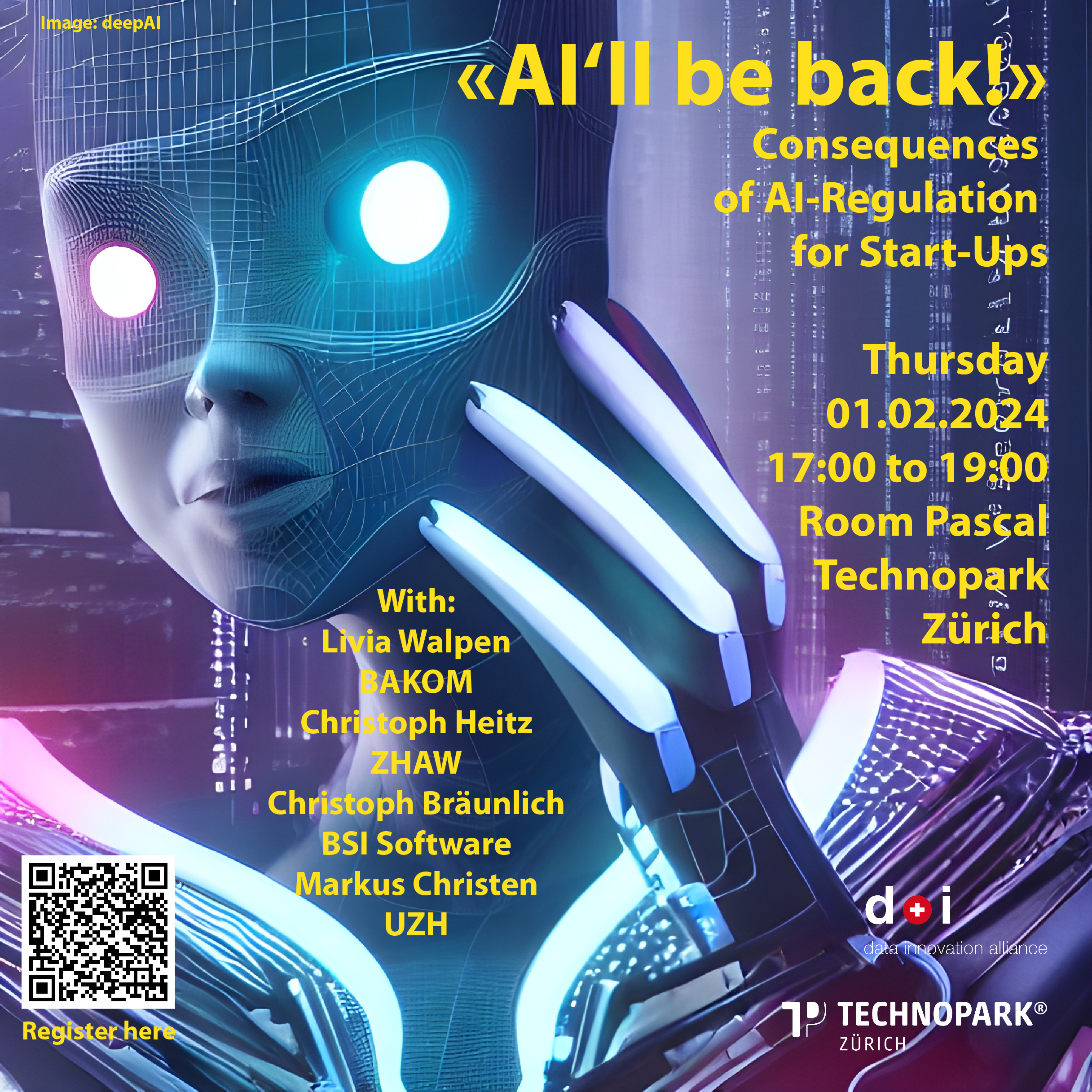Technopark Event «AI’ll be back – Consequences of AI regulation for startups”, Feb 1, 5 pm

19. January 2024
When: Thursday, February 1 2024, 17:00 to 19:00
Where: Technopark Zürich, Technoparkstrasse 1, Room Pascal (or Cobol)
Program
16:30 – 16:45 Arrival of speakers
17:00 – 17:05 Markus Christen: Welcome and outline of event
17:05 – 17:25 Livia Walpen: EU AI Act: State of play
17:25 – 17:45 Christoph Heitz: Is it possible to be prepared for the coming AI regulation as a company?
17:45 – 18:05 Christoph Bräunlich: Digital Responsibility as AI provider: Can a “Code of AI conduct” help?
18:05 – 18:30 All: discussion among speakers and with the audience (Moderator: Markus Christen); focus on consequences of AI regulation for startups (opportunities & ethics)
18:30 – 19:00 Apèro
Markus Christen leads through the event. Each talk is about 15 minutes long and we reserve about 5 minutes for short Q&A (and as time buffer). Markus Christen will make clear that only short questions after the talks are “allowed” – questions that are more extensive are reserved for the discussion round.
Description
The use of artificial intelligence in the EU will be regulated by the AI Act, the world’s first comprehensive AI law. Its purpose is to legally define artificial intelligence and impose documentation, auditing, and process requirements for AI providers. What does that mean for AI startups in Switzerland? Three speakers will discuss consequences, opportunities and risks of the AI Act. Livia Walpen, Senior Policy Advisor International Relations at BAKOM, outlines the current state of the EU AI act and its possible consequences for Switzerland. Christoph Heitz, Founder and President of the Data Innovation Alliance, discusses how developers of AI applications in companies need to prepare already today, how the AI Act changes the job of developers, and how startups can obtain support for these new challenges. Christoph Bräunlich, Head AI of BSI Software, presents a use case to demonstrate how a “Code of AI conduct” can help to be prepared for compliance for AI regulations. Speakers and audience will deepen questions in a discussion moderated by Markus Christen, managing director of the Digital Society Initiative of the University of Zurich.


